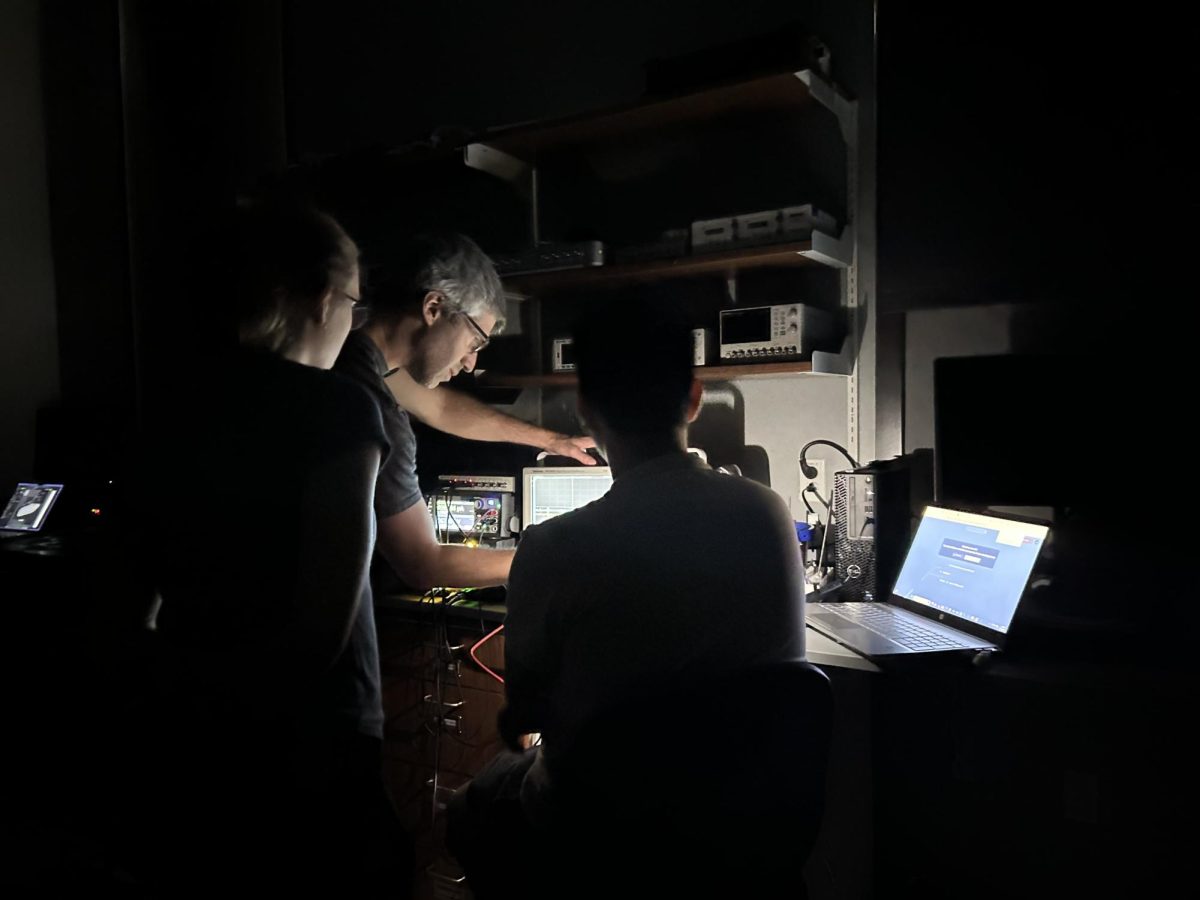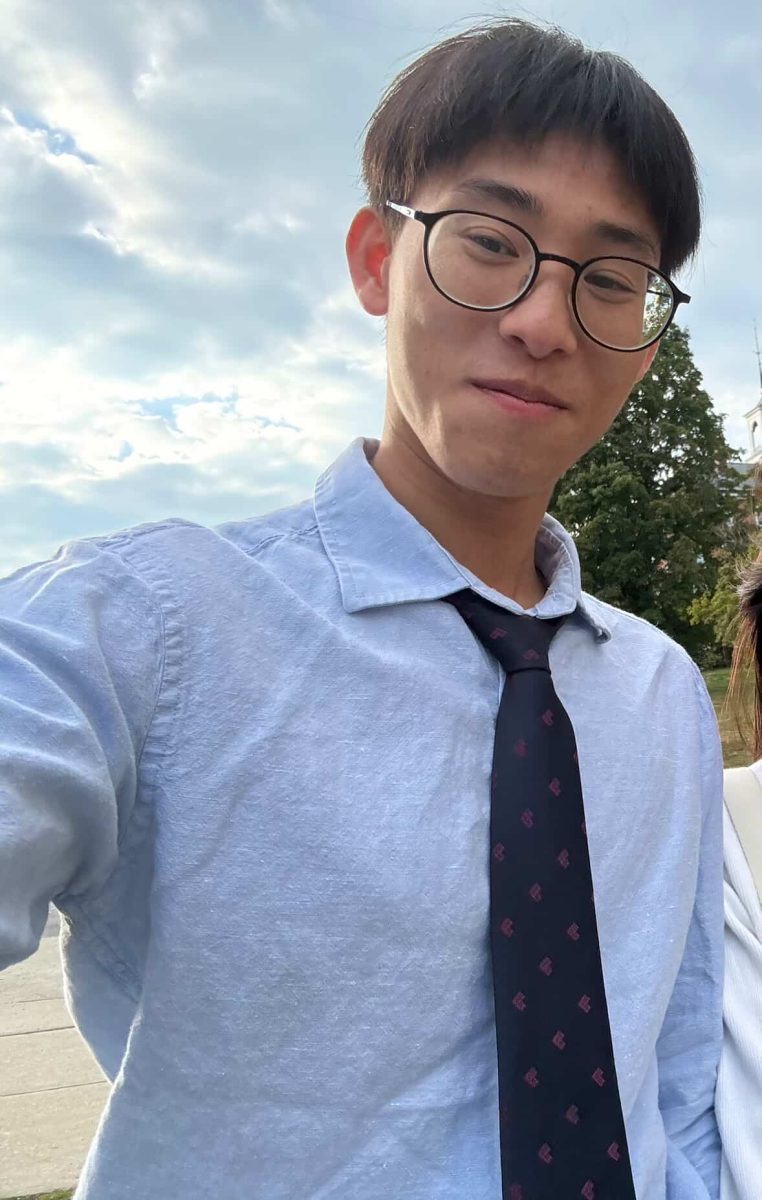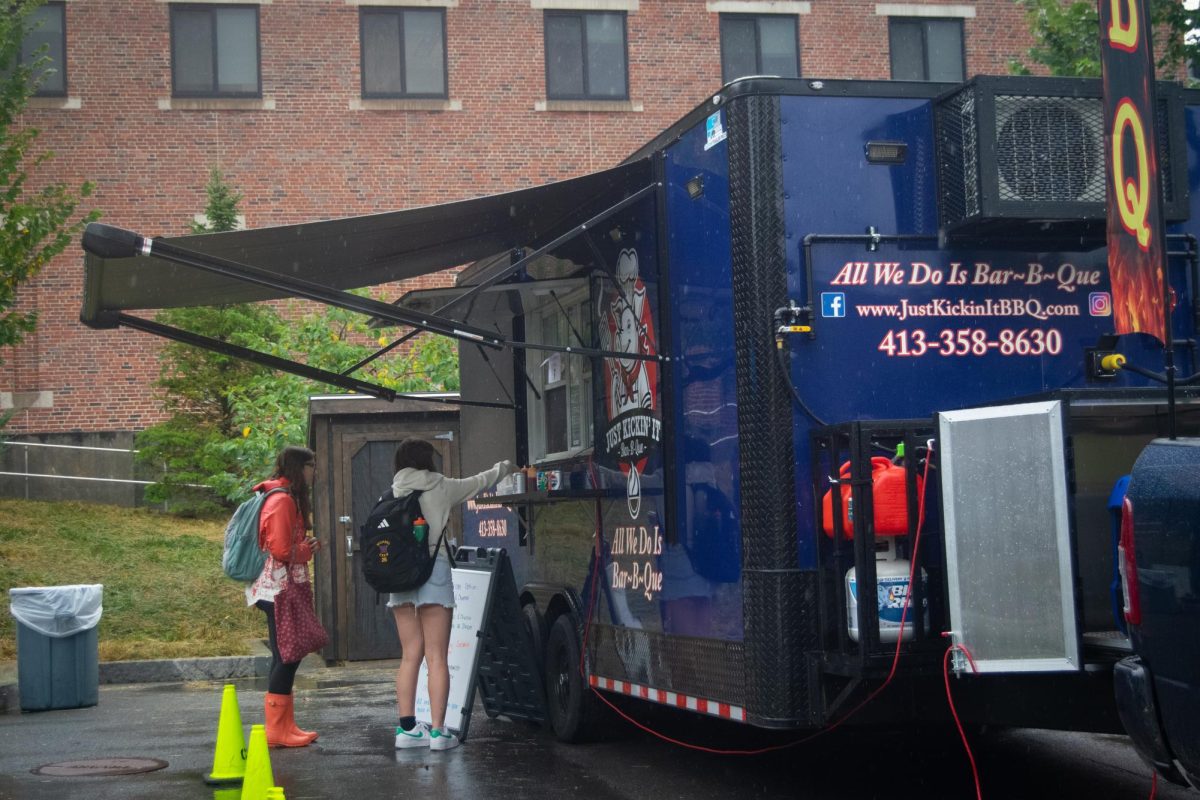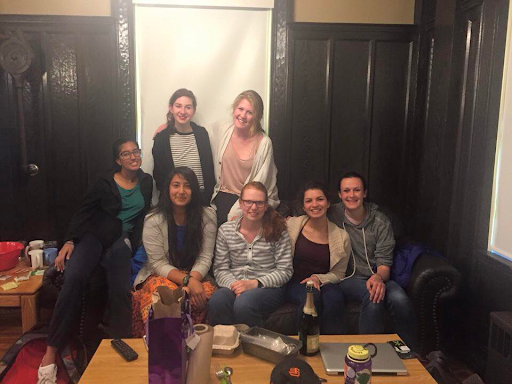
On Nov. 11 and 12, approximately a dozen students participated in the latest iteration of a doula training hosted by the Berkshire Doula Project (BDP). For roughly nine hours over the course of the weekend, students attended presentations about the tenets of doula support, learned about abortion procedures and IUD insertions, reflected on the role of intersecting oppressions in reproductive health care, and had the opportunity to ask a local doula questions.
BDP held its first doula training in 2016 and now offers one every semester. The trainings have always sought to educate students about reproductive health, but they have evolved as access to abortion and IUD services has changed in the Berkshires. Since its inception over seven years ago, BDP has been an ardent advocate for reproductive justice at the College. Today, it’s responding to the changing abortion landscape in the wake of the COVID-19 pandemic and the Dobbs v. Jackson Women’s Health Organization Supreme Court decision, which ruled in 2022 that there is not a constitutional right to abortion.
The beginnings of BDP date back to spring 2015, when Elizabeth Curtis ’17 and a few of her peers attended an annual reproductive justice conference at Hampshire College, where they listened to a speech by the founder of the Wesleyan Doula Project. “I think that’s when we all first heard about abortion doula collectives, and specifically abortion doula collectives at colleges,” Curtis told the Record.
Abortion doulas, Curtis learned, are a non-clinical support role. But unlike the more common birth doula, who offers physical and emotional support to those bringing a pregnancy to term, abortion doulas work with patients seeking to end a pregnancy, both before and after an abortion procedure.
Curtis had recently finished an independent study about birth practices in the Berkshires, during which she met with local birth workers. The following summer, she continued to build those relationships while starting research for her thesis, an ethnography of abortion in the region.
While talking to various medical professionals, Curtis found that many of them were unfamiliar with the concept of an abortion doula but were receptive to its potential benefits for patients. She connected with Joan Lister, a doctor at Berkshire Medical Center in Pittsfield, Mass., the only doctor accepting abortion patients without a referral from an established OB-GYN in the county at the time. Curtis spent the rest of the summer shadowing Lister’s practice.
“We would spend a lot of time talking about abortion doulas,” Curtis said. From these conversations, Lister decided to start an opt-out model for abortion doulas at her practice: Patients were automatically provided an abortion doula unless they specifically requested not to have one.
Roughly 20 people — a combination of students and community members — attended BDP’s first training in fall 2016, which was run by The Doula Project, a New York-based group credited with first coining the term “abortion doula” and putting the role into practice. BDP held another training the next spring, run by members of the Wesleyan Doula Project, and in the following years, returning members of BDP have run its trainings.
After members were trained, they were added to a roster of abortion doulas that provided in-person support to Lister’s patients in Pittsfield. Student doulas would sit in the room as patients received an informational counseling session the day before their abortions, keep them company in the outpatient surgical center before the procedure, and stay with them immediately after it. Sometimes, the student doulas would talk patients through the emotional weight of the procedure; at other appointments, they would simply keep patients company.
“I wasn’t necessarily sitting there processing [with patients] on these deep levels what it means that they’re sitting here having an abortion,” Curtis said. “Sometimes it was that. I had people who would be in tears asking, ‘Am I a bad person? Am I going to hell?’ But for the most part, it was a lot of people nervous before a medical procedure and just wanting to chat with someone.”
After one procedure, Curtis remembered, a patient’s mother pulled her aside to thank her. “She said, ‘I had an abortion when I was younger, and I was so alone. I still remember the noise — there was no distraction from it. I felt alone and scared. Watching the care that my daughter got here and watching you be here and offer that support has helped me process a lot of what I went through at the time,’” Curtis said. “That was a really special thing to hear.”
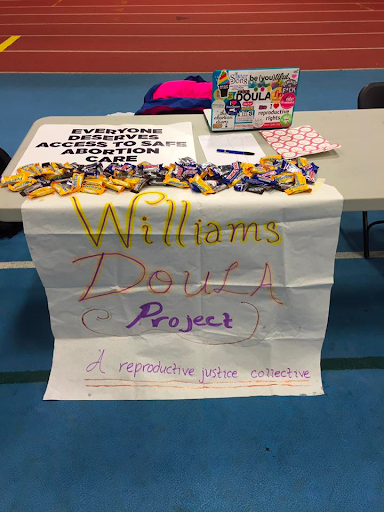
During the COVID-19 pandemic — a few years after Curtis had graduated from the College and passed the organization on to a new generation of students — the Berkshire Medical Center changed its policies about the number of people allowed to accompany a patient, and BDP was no longer able to offer in-person doula services. But the organization has remained active, shifting its focus to peer education and on-campus reproductive justice advocacy.
Current doula trainings, according to BDP’s treasurer Hannah Yoon ’25, benefit the College by arming a set of students with in-depth education about abortion and IUD procedures, who can then disseminate that information to their individual networks on campus.
“If I had a friend who needed an IUD insertion, and I learned how to access that through the training, then I could tell them about it,” Yoon said. “It’s very community-focused work.”
Beyond doula trainings, BDP has captured campus attention with two annual events, Menstruation Celebration and Masturbation Celebration, where the organization holds informational presentations, shares resources, and distributes an array of free items — menstrual cups at the former and sex toys at the latter.
Less known to the student body, however, is the advocacy work BDP has undertaken, even before the Dobbs decision and the 2022 closure of a Planned Parenthood health center in Bennington, Vt., brought new urgency to the cause.
“Even in the last two years, it’s crazy how much the landscape has changed,” said BDP Chair Brianna Nelson ’25.5. “We’ve had to shift to meet the landscapes.”
“Massachusetts is liberal, but Berkshire County is rural, and that rural-ness and lack of access to transportation is one of the barriers,” Nelson continued.
BDP, Nelson said, was a vocal advocate for the College to increase its non-emergency transportation range to trips over an hour following the Bennington Planned Parenthood’s closure. This new policy now covers student transportation for abortion procedures in health centers as far as Albany, N.Y.
In 2021, BDP also called on the College to make Plan B free and available to students at all times of the day. Now, with a Williams ID, students can retrieve an emergency contraceptive pill without cost at a vending machine in the Williamstown Apothecary, even outside of the pharmacy’s regular hours.
Initiatives like these are supported by Laini Sporbert, assistant director for health education and BDP’s staff advisor, who said she serves as a liaison between BDP’s student leadership and various members of the College’s administration. Most recently, the College’s Health Center has made plans to offer IUD insertions on site, which Sporbert attributed to advocacy by the student organization.
According to Nelson, BDP is considering how the organization should reimagine its work to “meet the needs of people where they are,” whether it’s a return to in-person doula work or creating a text-based support line for students or community members seeking medical abortions.
Sporbert, who has worked with the organization since Curtis helped start it in 2016, said its longevity is a testament to BDP’s importance to the community. “Students have a short timeline at Williams — they’re here for four years,” she said. “The fact that BDP is still around since 2015 really speaks to the need of the service and the passion for students around it, especially given the national context.”





